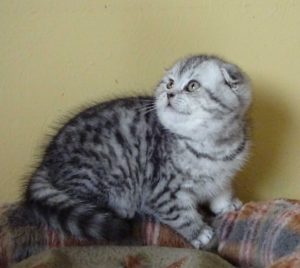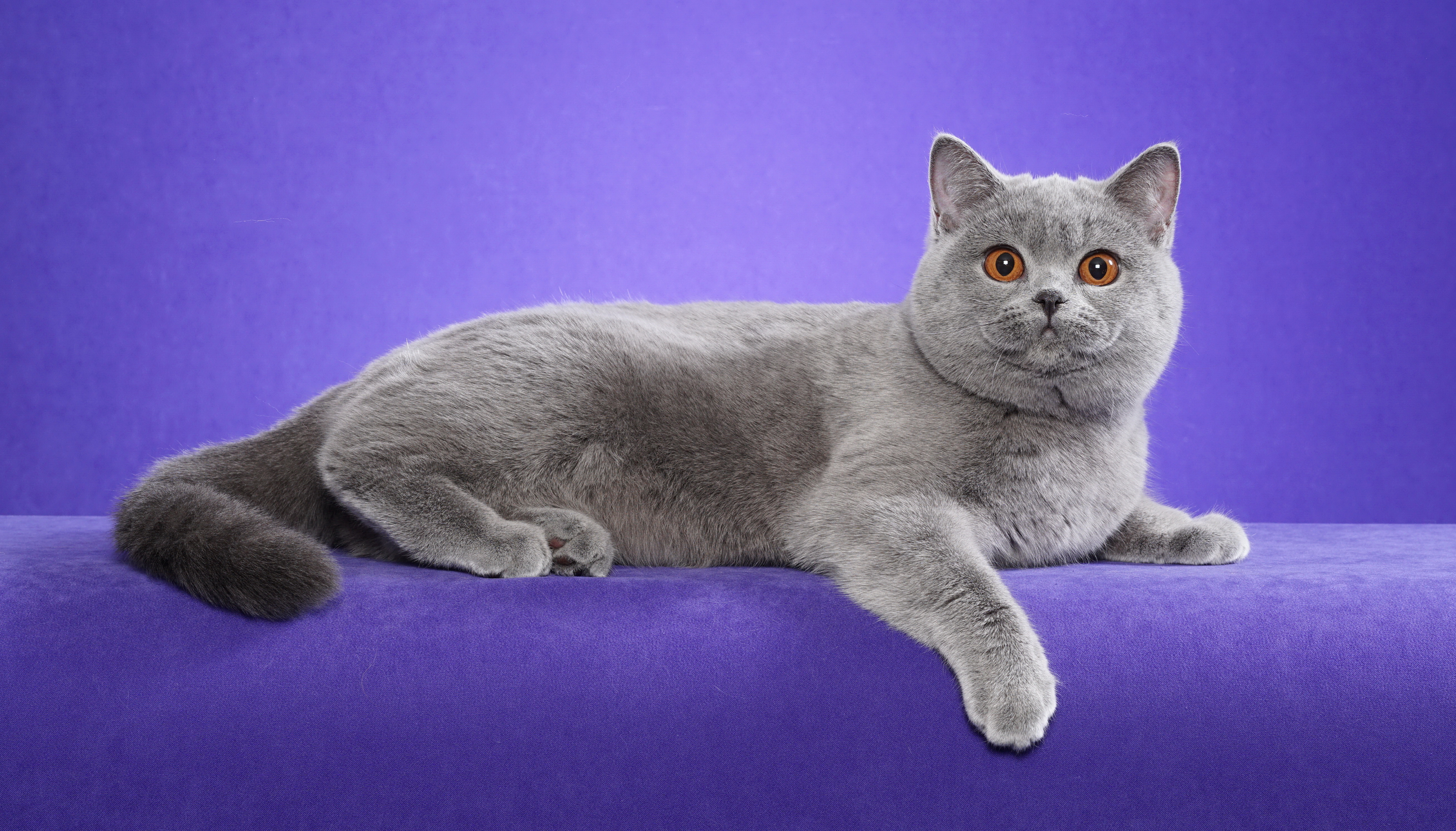Become our fan on Facebook!
Updates are posted on Facebook page more often than on the webpage.
Why do we breed Scottish Folds to British Shorthair ONLY?
Scottish Folds are products of an unusual genetic mutation. The attractive side of this mutation is that ears are folded forward. But the cute small ears and friendly round faces is not the only effect of this mutation. Unfortunately, this mutation may have a “dark” side which we can’t see in a kitten. Folded cats may develop serious health conditions later in life, and a lot of them can’t be treated because these diseases are genetic. The genetic “program” sometimes makes the cat unable to breed (due to illness or calcification of the spine). It’s Mother’s Nature way to eliminate mutants.
Since breeders are people who want to trick natural way of evolution, they chose artificial selection (called breeding). Breeders carefully select and breed only the cats that have certain selected traits. Therefore, the traits are being carried over to the next generation and preserved in a breed. But breeding mutants is obviously against the nature’s rules. While breeding and selecting certain cats the most important part is to minimize risk of genetic abnormalities in future generations of these cats and let them live a long and happy life. Breeders have to do everything not to let the folded gene “accumulate” in the next generation to the point that it can hurt a cat.
As a rule, it’s prohibited to breed a folded cat to a folded cat. Nearly all the kittens from such a litter will have folded ears, but some either don’t survive or if survive, don’t always live a fulfilling life which makes owning such a kitten a very difficult and challenging task. Scottish cat who has straight ears still has “hidden” genetic information about one of his folded parent, which they will carry over to the next generation as well. If a folded cat is bred to a straight eared cat (whose one of the parents was folded), the litter will have both folded and straight eared kittens. As noted, straight eared kittens very rarely develop genetic diseases associated with the folded gene. However, the folded kittens from the same litter still have a high risk of developing genetic problems due to “accumulation” of the genetic information (from one of the parents and one of the grandparents).
The fact is the straight eared cats are not genetically “clean” to ensure the good health of the next generation. We use only British Shorthair cats which are officially accepted outcross to Folds. British cats have no traces of folded gene (mutant gene), they are very healthy and robust cats, built to last. When kittens are born from a folded cat and a British Shorthair, the chances of developing genetic abnormalities are minimized significantly. Kittens with folded ears from such a litter will have same folded ears on their head, but also strong bone structure and less harmful genetic information since it comes from only one of the parents.
As a matter of fact, I believe the healthy genes from British Shorthairs can “overwrite” harmful genes associated with folded ears or at least supress the development of genetic diseases in folded cats. This statement is not scientifically proven, but I can say it based on my knowledge of cat genetics (I also have BS degree in Biology and Chemistry) and personal experience with breeding these beautiful, healthy and happy cats for several generations, for over 15 years already.
Natalia Foster
Healthy cats with folded ears – it that what you are looking for? Email me if you have questions!


A word on Scottish Kilts (a mix of Scottish Fold and Munchkin) – WE DO NOT BREED Scottish Kilts.
Combination of two mutant genes creates severe health problems. Scottish Kilt is not a registered breed, and never will be recognized by any reputable cat registry. Read more on one of our popular Fecebook post about Scottish Kilts, see comments and shares of responsible breeders who understand the dangers of such mixes.
Become our fan on Facebook!
Updates are posted on Facebook page more often than on the webpage.

